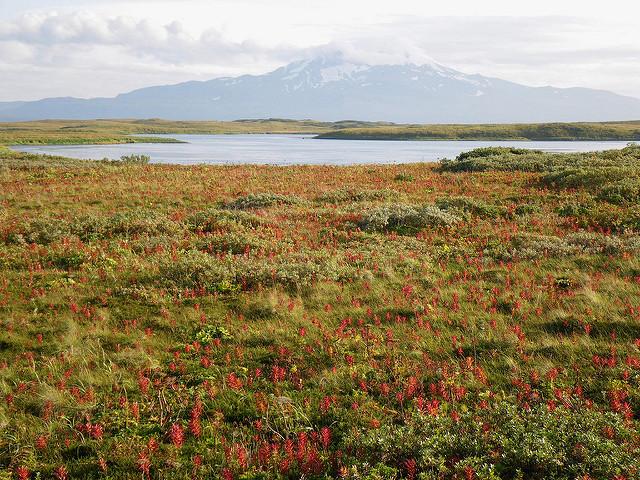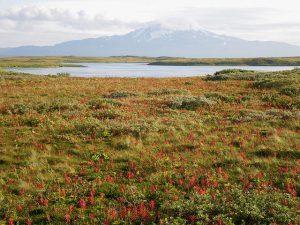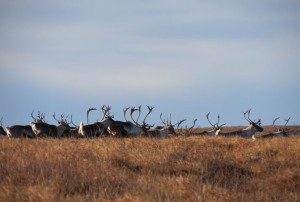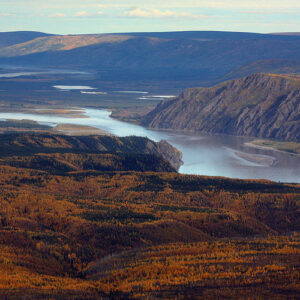
The legal waiting game
Trustees and its clients will play the legal waiting game this fall while waiting for several District Court decisions. These rulings could improve the health of our lands, waters and communities, or trigger ongoing litigation to defend against the threats to wildlife habitat, wilderness, and public lands.

Fall colors at Izembek Lagoon. Photo by Kristine Sowl, USFWS.
Izembek
At the end of January, Trustees filed a lawsuit on behalf of nine clients that challenges the land deal made between Interior Secretary Ryan Zinke and King Cove Corporation to allow a road in Izembek National Wildlife Refuge Wilderness. The land exchange agreement made behind closed doors and without public input would give public lands to private interests at the expense of wildlife and wildlife habitat.
“The Interior’s attempt to skirt the law to benefit private, commercial interests disregards the intention of Congress and the purpose of the Refuge System itself,” said Katie Strong, senior staff attorney with Trustees for Alaska. “The deal is unlawful and contrary to the carefully struck deal in ANILCA.”
The land exchange attempts to trade Refuge and Wilderness lands to make way for a road without using procedures established by Congress in the Alaska National Interest Lands Conservation Act. Commercial and private interests have advocated for a road for decades.
The case was recently transferred to a new federal District Court judge after another judge’s recusal.

The Western Arctic Caribou Herd migrates through the road area and is an important subsistence resource. NPS Photo.
The Western Arctic
Trustees also filed a lawsuit challenging the 2017 lease sale in the Western Arctic, or the National Petroleum Reserve-Alaska, in February. Lead attorney Suzanne Bostrom presented oral arguments last month.
The lawsuit claims that the U.S. Bureau of Land Management broke the law when it failed to do any environmental analysis prior to the lease sale. The agency did not take a close look at site-specific impacts, nor did it assess the cumulative impacts of multiple development proposals throughout the area.
“The Trump administration wants to hastily hand over public lands without looking at how oil and gas activities affect fish, wildlife, access to wild foods and more,” said Bostrom. “This ‘quick sell’ attitude toward lands that belong to all of us is unlawful.”
BLM further failed to preserve its ability to say “no” to later development proposals, even if those proposals would have huge impacts, like disrupting animal migration routes and nesting areas, reducing or eliminating the availability and access to wild foods, and devastating the sustainability and health of wildlife habitat. BLM needs to retain its regulatory authority over future development when it issues oil and gas leases.
 NPS authority in Yukon Charlie
NPS authority in Yukon Charlie
Two Trustees attorneys will head to Washington, D.C. next month to attend oral arguments before the U.S. Supreme Court in a case filed by John Sturgeon with the support of the State of Alaska. The lawsuit claims that a provision of ANILCA stripped NPS of the power to regulate navigable rivers within Alaska’s national parks.
Trustees filed an amicus (“friend of the court”) brief in each court since 2011 in support of NPS’ efforts to enforce safety and other park regulations on waters within park boundaries. An Appeals Court previously ruled in favor of NPS.


